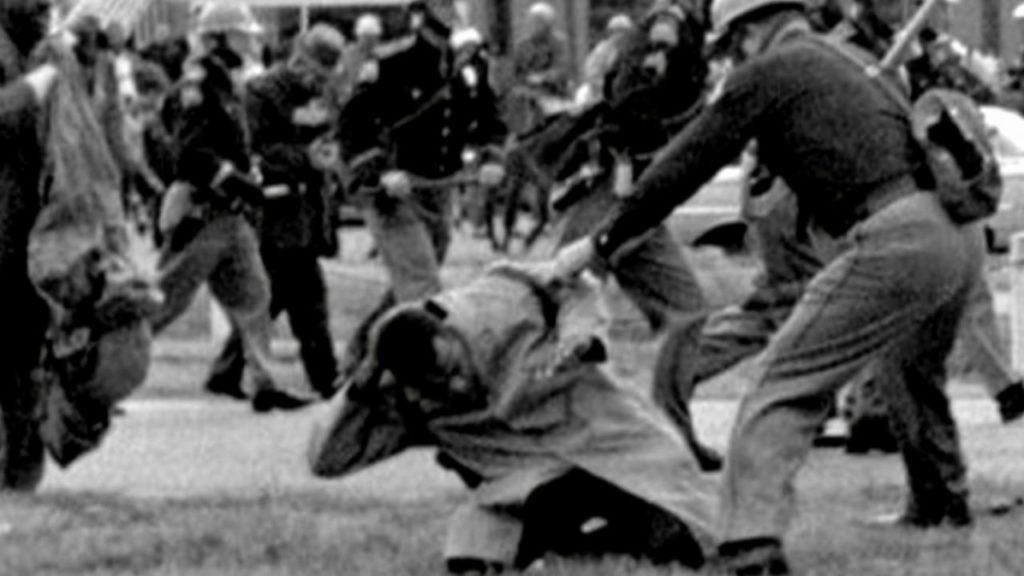
Monday
Professor David Greenberg yesterday reported in the Washington Post that the late John Lewis’s favorite poem was William Ernest Henley’s “Invictus,” a lyric about which I have mixed feelings. As I note in a previous essay, it’s a poem that has been embraced by both Nelson Mandela (good) and Oklahoma City bomber Timothy McVeigh (bad!). Lewis’s love for the poem is getting me to rethink it, however.
As a child, Lewis would apparently go around the house reciting “Invictus.” Given that one day he would literally be bludgeoned, once by a coca cola crate and another time by a police baton that fractured his skull—and that he refused to violently resist the blows—the second stanza takes on new resonance:
In the fell clutch of circumstance
I have not winced nor cried aloud.
Under the bludgeonings of chance
My head is bloody, but unbowed.
In my blog post, I questioned Henley’s understanding of soul. Declaring himself to be “master of my fate” and “captain of my soul” sounded too much like a power fantasy that a white terrorist like McVeigh would indulge in. Lewis, however, read mastery in a very different way.
He probably picked up on the poem’s religious references. The black night “that covers me” sounds like St. John of the Cross’s “dark night of the soul”; the scroll of sins points to God’s final judgment (Matthew 25:31-46); and “it matters not how strait the gate” directly quotes Jesus (Matthew 7:13-14):
Enter ye in at the strait gate: for wide is the gate, and broad is the way, that leadeth to destruction, and many there be which go in thereat. Because strait is the gate, and narrow is the way, which leadeth unto life, and few there be that find it.
In other words, mastery for Lewis is personal discipline and staying true to his faith. His soul is unconquerable because it is from God.
To be sure, Henley doesn’t mention God in his poem (“whatever gods there be” doesn’t count), and as the poet sees it, this world is nothing more than a “place of wrath and tears” followed by “the Horror of the shade.” Henley’s stance is one of existentialist bravado (a la Hemingway or Dashiell Hammett), a man brandishing a personal code of honor in the face of an absurd universe. For Lewis, on the other hand, following Jesus’s call to love can transform this vale of tears into a fertile garden. As Psalm 84:6 puts it, “Who passing through the valley of Baca make it a well; the rain also filleth the pool.” The end point for Lewis was not personal triumph but a fulfillment of divine love and forgiveness.
Greenberg sees the poem capturing Lewis’s “indomitable spirit,” and that was certainly one dimension of the man. But everyone who knew Lewis also recalls his extraordinary humility, and “Invictus” is not a humble poem. Lewis’s power came from the way he thanked God, not in a perfunctory manner, but with his whole heart.
Nevertheless, we can imagine Lewis using “Invictus” to stiffen his spine when he found himself in the “fell clutch of circumstance.” Poetry provides us with such power.
Invictus
It matters not how strait the gate,
How charged with punishments the scroll,
I am the master of my fate,
I am the captain of my soul.
Out of the night that covers me
Black as the pit from pole to pole,
I thank whatever gods may be
For my unconquerable soul.
In the fell clutch of circumstance,
I have not winced nor cried aloud.
Under the bludgeonings of chance
My head is bloody, but unbow’d.
Beyond this place of wrath and tears
Looms but the Horror of the shade,
And yet the menace of the years
Finds, and shall find me, unafraid.
It matters not how strait the gate,
How charged with punishments the scroll,
I am the master of my fate:
I am the captain of my soul.

